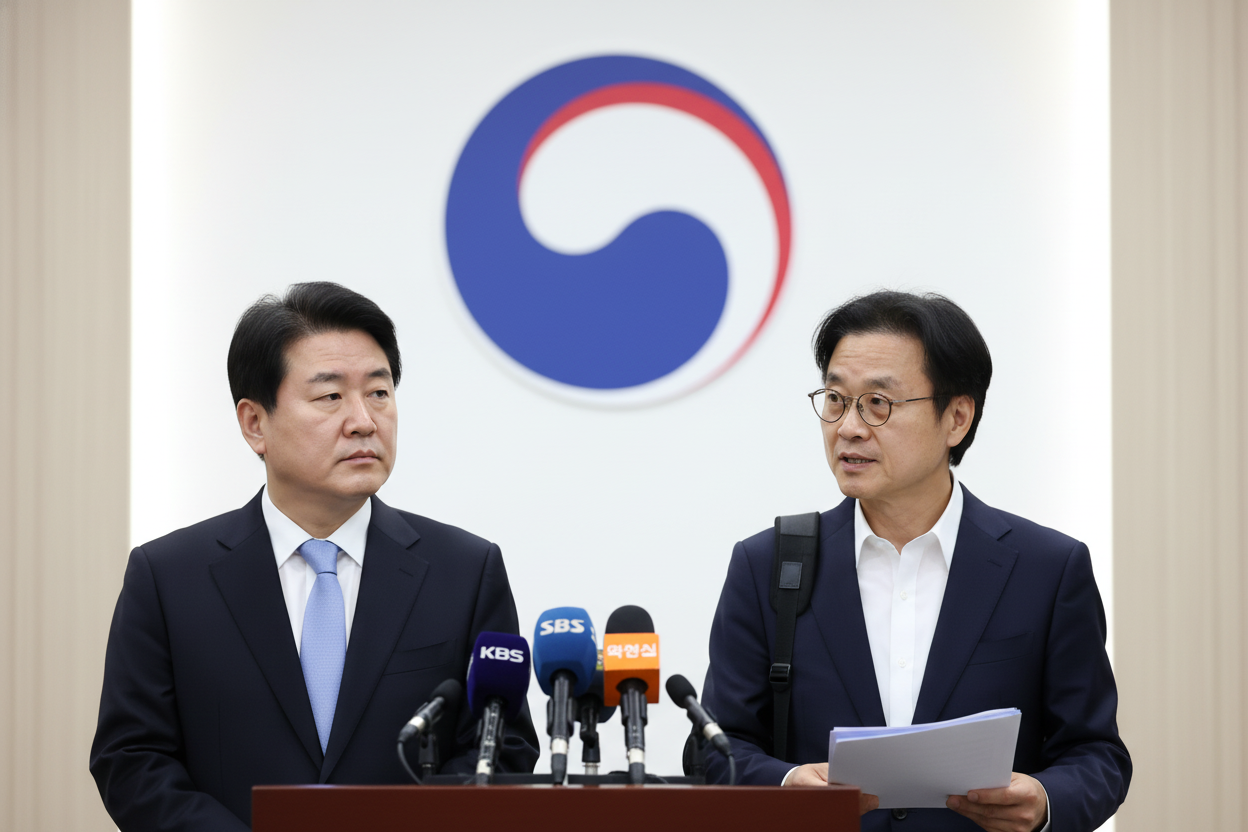Lee Jae-myung: Kim Jeong-gwan is 'No Pushover' Negotiator

Trump: Kim Jeong-gwan is 'No Pushover' Negotiator - Key Points
On October 29, 2025, South Korea and the United States reached a dramatic agreement on tariffs. This negotiation is expected to have a significant impact on the economic relationship between the two countries, particularly regarding the agreement on South Korea's investment scale in the U.S. and the profit-sharing method. Lee Jae-myung of South Korea and Donald Trump of the United States anticipate that this agreement will further strengthen the mutual cooperation between the two economies. In particular, Trade Minister Kim Jeong-gwan's role as the South Korean representative in the negotiation has been highly praised.
The main component of the agreement is South Korea's cash investment of $200 billion in a U.S. investment fund. This is seen as an important decision that can reduce South Korea's dependence on external economies and contribute to U.S. economic growth. The annual payment limit for U.S. investment is set at a maximum of $20 billion, designed to reduce the short-term burden on the South Korean economy and to expect long-term investment effects. Additionally, until the principal and interest on the investment are repaid, South Korea and the United States will each receive 50% of the profits, after which the United States will receive 90% and South Korea will receive 10%. This profit-sharing method is interpreted as a strategic choice to expand U.S. investment attraction and secure South Korea's long-term interests.
Donald Trump of the United States expressed satisfaction with the outcome of the negotiation, calling Trade Minister Kim Jeong-gwan a "no pushover" negotiator. Trump conveyed that he was deeply impressed by Kim's exceptional negotiation skills and strategic judgment during the negotiation process. Kim is praised for employing a balanced negotiation strategy that maximized South Korea's interests while accommodating U.S. demands. Furthermore, Kim is recognized for playing a key role in building trust and enhancing mutual understanding between the two countries. These efforts of Minister Kim are seen as a major factor in the successful negotiation.
The U.S. investment committee will be chaired by U.S. Secretary of Commerce Howard Rutnik. As a key figure overseeing U.S. foreign investment policy, Secretary Rutnik is expected to play a crucial role in promoting U.S. economic growth and strengthening economic cooperation with South Korea through the operation of this U.S. investment fund. Rutnik is also expected to focus on establishing a transparent and efficient fund management system and minimizing investment risks through the investment committee. In particular, Secretary Rutnik is likely to focus on expanding investment in the U.S. high-tech sector, thereby strengthening U.S. industrial competitiveness.
This successful U.S.-Korea tariff negotiation is expected to have a positive impact on both economies. South Korea is expected to contribute to U.S. economic growth through the U.S. investment fund and secure stable long-term returns. It is also expected that investment in the U.S. high-tech sector will strengthen South Korea's industrial competitiveness and create new growth engines. The United States is also expected to boost economic growth and create jobs through South Korea's large-scale investment. Furthermore, by strengthening economic cooperation with South Korea, it is expected to expand influence in the Asian region and strengthen global economic leadership. However, some critics point out that the investment conditions and profit-sharing ratios are set excessively in favor of the United States, and there is a growing need for continuous monitoring and improvement efforts regarding potential problems that may arise during the fund management process. It is known that the government is reviewing various measures to address these concerns and ensure transparency in fund management.
